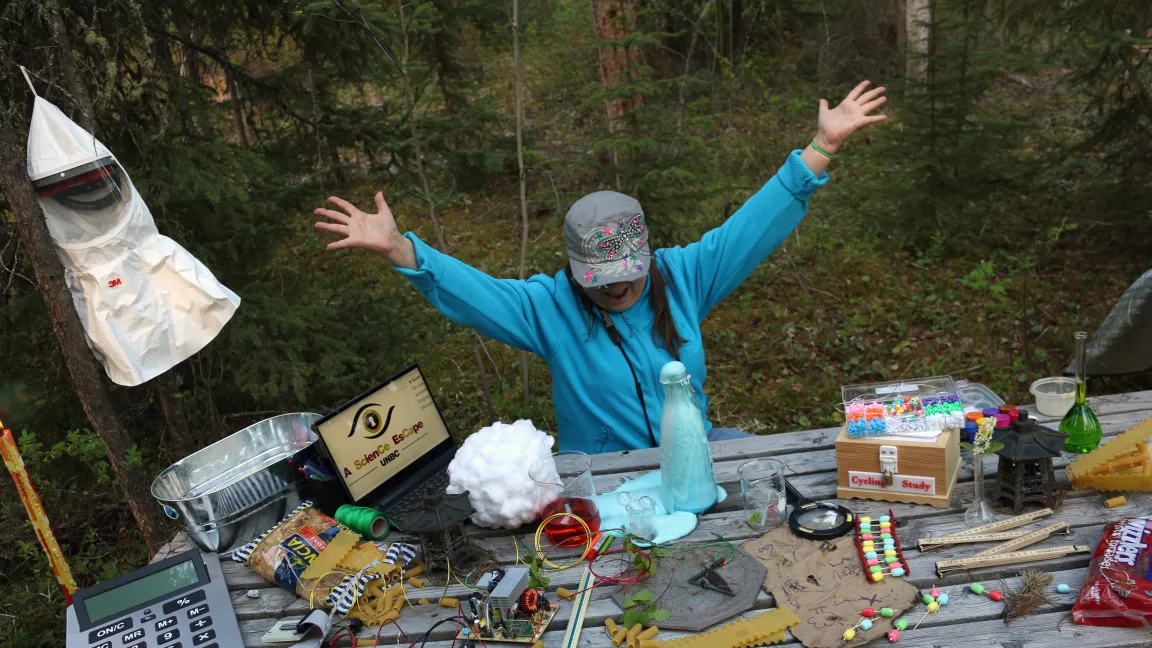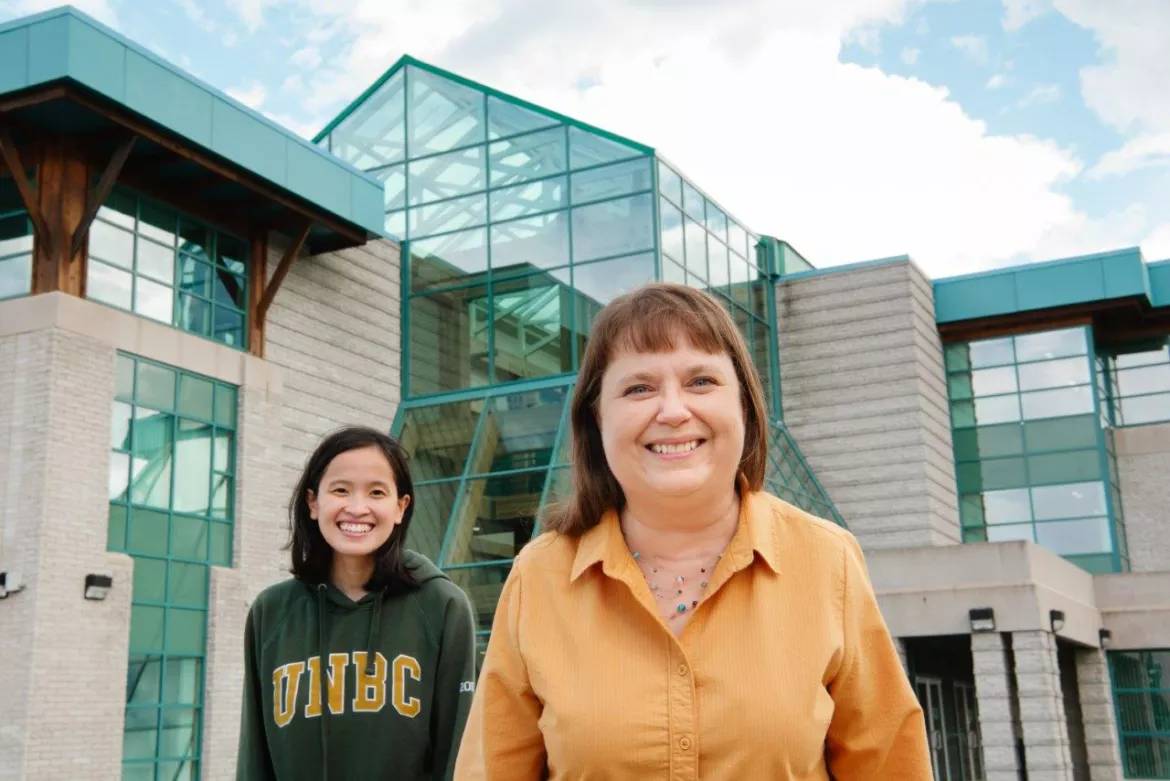Immersive STEM learning program debuting this fall for Indigenous high school students
A Science Escape at UNBC is a free immersive program which will offer participating Indigenous youth from Northern BC an opportunity to expand their STEM knowledge through active online learning, at-home experiments, and, when it becomes possible, a week-long on-campus experience.

A new immersive science program for First Nations, Métis, and Inuit high school students will make its debut this fall at UNBC. “A Science Escape at UNBC” will offer a small group of six students from grades nine and ten an opportunity to learn more about how scientific principles are embedded in our everyday world and to explore careers in science, technology, engineering and mathematics (STEM). The initiative has received a three-year $93,600 grant through the Natural Sciences and Engineering Research Council of Canada (NSERC) PromoScience program and will also be supported by in-kind contributions through UNBC.
The program has been developed to run as an online course for six weeks, during after-school hours, and is intended to also include a one-week on-site visit to the UNBC campus in Prince George (which may be modified pending COVID-19 provincial guidelines). The camp aims to provide opportunities for participants to expand their STEM knowledge, grow their critical thinking skills and experience university and research lab life first-hand.
“We have chosen to focus on a very small group of students because we are looking at not just developing the students’ knowledge base but also their connections with each other and with program mentors, in order to build a continuing network of support,” says Dr. Malgorzata (Mal) Kaminska, assistant professor in the Division of Medical Sciences at UNBC.

“We have already been getting great support, and hope to get even more, from the UNBC community, through different departments as well as with grad students in STEM programs who will be helping with program design, some of whom are First Nations, Métis or Inuit themselves.”
Photo: MSc NSERC student Ann Duong (L) and Division of Medical Sciences assistant professor Dr. Malgorzata Kaminska.
“What is unique about our program is that we are not focusing just on traditional careers in STEM,” says Ann Duong, Master of Science student in Natural Resources and Environmental Studies (NSERC) at UNBC. “We want to empower participating students to think about how to create their own jobs and businesses that can arise from STEM principles. For example, if they see something in their local environment that concerns them and they have the knowledge from our program and their future studies to tackle it, then we hope to inspire them to pursue solutions through their own career avenues.”
The new program will initially draw students through recommendations from Indigenous liaisons at School Districts No. 28 (Quesnel), No. 57 (Prince George) and No. 91 (Nechako Lakes) for its upcoming autumn roll-out with expansion planned to other school districts in northern B.C. as part of future programming goals.
The six-week program will offer daily virtually-delivered presentations as well remote hands-on activities such as experiments in a box that students will be able to do at home. Each week will culminate with a virtual escape room activity in which students will be able to apply the knowledge and skills they have just learned.
“A key aspect of our camp will be to ensure all participants have equal access to the learning experiences,” notes Duong. “For students who need it, we will be lending out electronic devices such as laptops as well as ensuring internet connection, all with no associated costs to our participants.”
“We hope to give our participating students an in-depth look at different topics each week that continually build on their learning over the six weeks of the program, helping them to better understand how science is a part of their everyday lives,” explains Kaminska. “A special goal of our camp is to unite Western knowledge with Indigenous ways of knowing by pairing a UNBC faculty member or graduate student with an Elder so each can share their unique perspectives on a particular topic.
“We also want to help our students reach their own personal learning goals within the camp, so in our planning, we are working to ensure that we will have the ability to modify lesson plans in order to help reach the goals that each participant has set for themselves.”